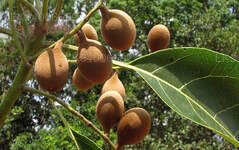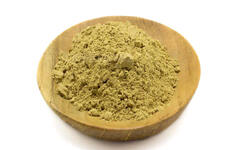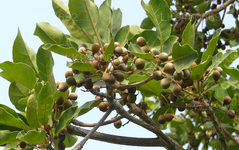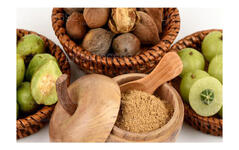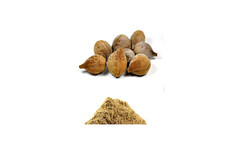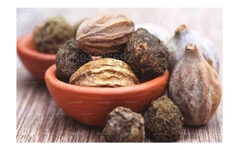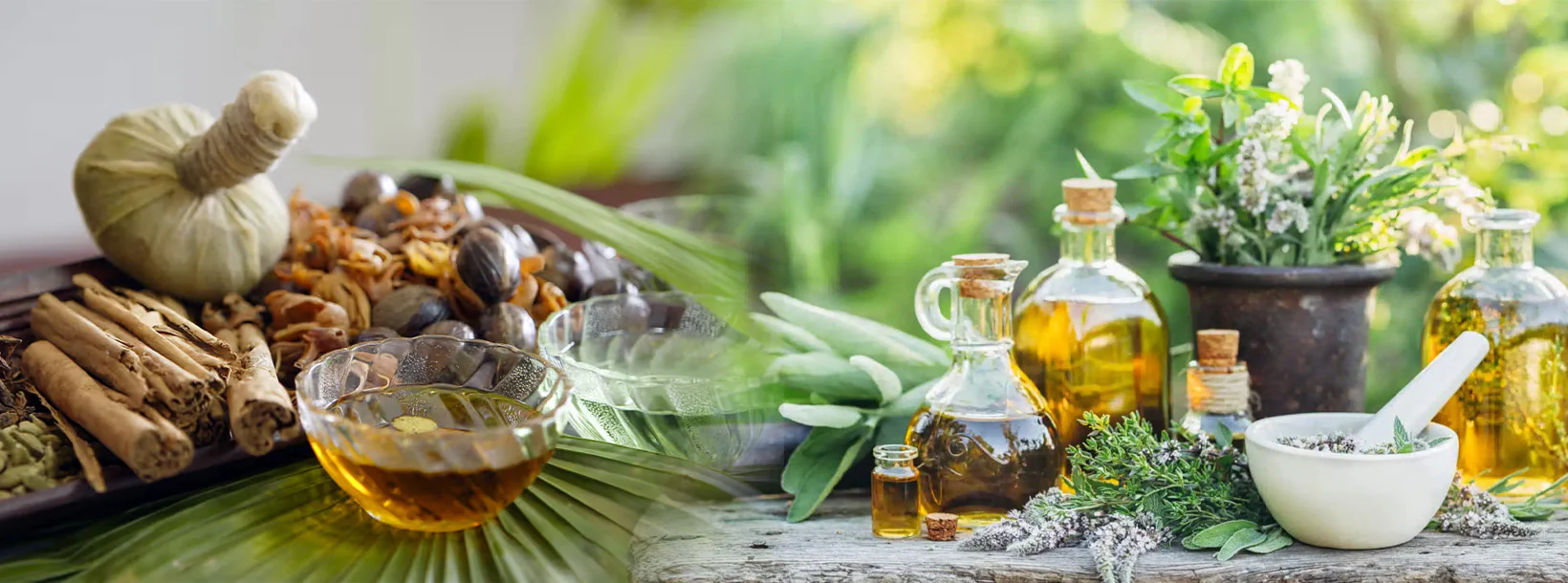
Ayurvedic Medicinal Plants
Sri Lanka's Ayurvedic tradition features a rich variety of medicinal plants used for centuries. Sri Lanka has a rich tradition of Ayurvedic medicine, drawing on its indigenous knowledge and a variety of medicinal plants. Here are some notable Ayurvedic medicinal plants found in Sri Lanka:
Terminalia bellirica (බුළු)
Terminalia bellirica, known as baheda, bahera, behada, beleric or bastard myrobalan , is a large deciduous tree in the Combretaceae family. It is common on the plains and lower hills in South and Southeast Asia, where it is also grown as an avenue tree.
In traditional Indian Ayurvedic medicine, Beleric is known as "Bibhitaki" (Marathi: "Behada or Bhenda") (Terminalia bellirica). Its fruit is used in the popular Indian herbal rasayana treatment triphala. In Sanskrit it is called bibhītaka . In India, Neemuch; a town in Malwa Region of Madhya Pradesh is a major trading centre of skinless baheda and entire fruits of T. bellirica. The fruits are widely collected in the wild in the Malwa region of Madhya Pradesh.
"This tree, in Sanskrit Bibhita and Bibhitaka (fearless), is avoided by the Hindus of Northern India, who will not sit in its shade, as it is supposed to be inhabited by demons. Two varieties of T. belerica are found in India, one with nearly globular fruit, 1/2 to 3/4 inch in diameter, the other with ovate and much larger fruit. The pulp of the fruit (Beleric myrobalan) is considered by ayurvedic physicians to be astringent and laxative, and is prescribed with salt and long pepper in infections of the throat and chest. As a constituent of the triphala (three fruits), i.e., emblic, beleric and chebulic myrobalans, it is employed in a great number of diseases, and the kernel is sometimes used as an external application to inflamed parts. On account of its medicinal properties the tree bears the Sanskrit synonym of Anila-ghnaka, or "wind-killing." According to the Nighantus the kernels are narcotic."
In the Charaka Samhita, the ancient Ayurvedic text, Bibhitaki fruits are mentioned as having qualities to alleviate disease, and bestow longevity, intellectual prowess and strength. There are several "rasaayan" described in the Charaka Samhita, that use Bibhitaki.
Description of Fourth Amalaka Rasaayan, which includes Bibhitaki as one of the fruits:
By this treatment, the sages regained youthfulness and attained disease-free life of many hundred years, and endowed with the strength of physique, intellect and senses, practiced penance with utmost devotion.
-

Ankenda
Acronychia pedunculata -

Beli
Aegle marmelos -

Bakmi
Nauclea orientalis -

Bangwel-geta
Coscinium fenestratum -

Bukinda /Walkinda
Tinospora malabarica -

Bu- kobbe
Allophylus cobbe -

Dodan –kaha
Memecylon capitellatum -

Diyamitta
Cissampelos pareira -

Embul dodan
Citrus aurantium -

Gas nidikumba
Biophytun reinward -

Hintambala
Carmona microphylla -

Goraka
Garcinia cambogia -

Karapincha
Murraya koenigii -

Keppetiya
Croton laccifer -

Kohomba
Azadirachta indica -

Kotikan-bevila
Sida alba -

Kudumiris (Forest paper)
Toddlia asiatica -

Kurundu
Cinnamomum zeylanicum -

Mahakaramba
Carissa carandas -

Muna mal
Mimusops elengi -

Nelli
Phyltanthus emblica -

Puwak
Areca catechu -

Rath mal
Ixora coccinea -

Eepatta / Ruk - anguna
Alangium salviifolium -

Siyambala
Tamarindus indica -

Walangasal / Wal-embilla
Embelia ribes -

Wal Karapincha
Micromelum ceylanicum -

Welangiriya
Paramignya monophylla
Ayurvedic and Herbal
-
싯달레파 아유르베다 허벌 밤
정가 ₩1,000 KRW에서정가단가 / 단위₩1,000 KRW할인가 ₩1,000 KRW에서 -
락푸라 탈수 사워솝 (과나바나, 그라비올라, 가이아바노) 잎
정가 ₩5,000 KRW에서정가단가 / 단위₩4,000 KRW할인가 ₩5,000 KRW에서 -
링크 스와사 트리팔라 (30정)
정가 ₩3,000 KRW에서정가단가 / 단위₩4,000 KRW할인가 ₩3,000 KRW에서할인 -
세스와 프라나제와 미라클 오일
정가 ₩5,000 KRW에서정가단가 / 단위₩6,000 KRW할인가 ₩5,000 KRW에서할인

